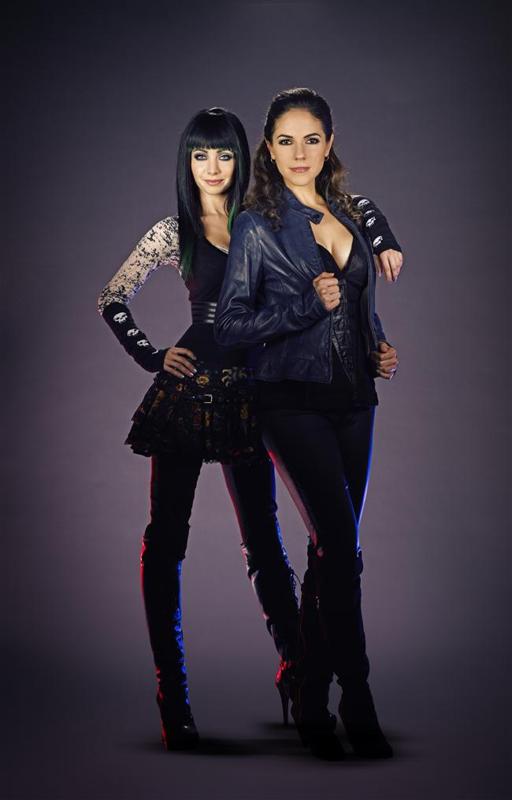
While at the TCA Winter Press Tour, executive producer/writer/comic book creator Robert Kirkman and executive producer/showrunner Glen Mazzara talked about the slow build-up during the first half of the season, how the second half will accelerate the storytelling, the decision to introduce a new human threat, fan favorite characters from the comics who will likely appear sooner rather than later, the hope to bring Lennie James back at some point, and whether the possible concept ideas that former showrunner Frank Darabont had for Season 2 could ever have happened. Kirkman also talked about where the comic book series is headed, and the types of comic book titles he’s looking to release through his publishing label. Check out what they had to say after the jump, and be aware that there are some spoilers:
Question: Where does the first episode back pick up?
GLEN MAZZARA: Five seconds later. After the finale, finding Sophia in the barn is just a huge event that rocks our characters and changes everything on the farm. So, I think the stakes are much higher and people are dealing with a lot more. The storytelling becomes denser and just brings everything to a full boil.
Looking back, do you regret taking several episodes to look for Sophia?
ROBERT KIRKMAN: I think it was important to take the time to get to know our characters. It’s a good thing to lull people into a false sense of security, when the characters are experiencing a false sense of security. I think their time spent on the farm made the Sophia reveal that much bigger of a payoff, but is also going to inform just how the last six episodes are interpreted. I think, if they didn’t have that moment of calm, where we got to know our characters a little bit better and we got a sense that things were looking pretty good for them, this farm would have been a great place for them to be. In the next half of the episodes, we’re going to see that the farm isn’t that great a place. You have to build up what they have, before you can take it away. That’s really what makes the story more interesting.
MAZZARA: Yeah, I think we have a story that we’re telling over 13 episodes. That first half had a great payoff, and the second half accelerates the storytelling. I don’t know if we’d say that we regret any of the episodes that we did. I’m proud of those episodes and, if some people feel that some of those episodes were slower than others, I could argue that we were spending time with our characters.
Were you surprised that audiences had a hard time with the slow build?
MAZZARA: Well, I could make the case that that’s true for a certain segment of the audience. People have expectations about the show, and the show is a difficult show to write because, if we have a zombie attack every week, people say it’s the zombie-of-the-week. And, if we don’t have zombies, people say there are no zombies. So, it’s a challenging situation. I think that we’ve looked at making each episode as interesting and as compelling as possible. I think we get better at that, as it goes on. There might be some folks who would love for the show to be more of a video game. I’ll say this: the show is improving. If there were episodes that felt as if they were stalling, or that they weren’t under threat, and that perhaps the farm felt too safe and the threats were outside off the farm, a lot of that changes, in the back part of the season. I think that things pick up. It just becomes more accelerated. The stakes are higher, it’s more action-packed and it’s more interesting. By the end of these six episodes, hopefully those fans will agree that this is a thrill ride because we really do feel there are huge pay-offs, coming up in each episode. You won’t have to wait for just the last episode. Maybe there weren’t pay-offs, along the way.
KIRKMAN: I think that building to that reveal of Sophia was a pay-off that we were working towards, and I think we did a good job of working towards it. I would also like to say that the Sophia reveal is really the beginning of an escalation that takes us all the way through to the end of our season. We started out searching for Sophia, and then things got a little bit heightened, when we found her in the barn. That’s going to lead to a lot of conflict. That’s going to lead to a new threat on the horizon, that you’ll see in our first episode back, which is really going to dovetail into a big series of events that’s going to lead us to our finale. So, having that big escalation would not work as well, we feel, if we didn’t have those episodes. We recognize this criticism, and it is valid, but we are working on a 13-piece puzzle that, as a whole, should be seen in a different light. We’re hoping that, when it’s all put together, people will see that it all came together in a good way.
MAZZARA: I think people will be satisfied, by the end of this run. You learn how to do a show, as you’re writing it. The story material reveals itself, so if there’s a way to break down that criticism and look at it moving forward, that’s valid.
Read the rest of the interview here.















